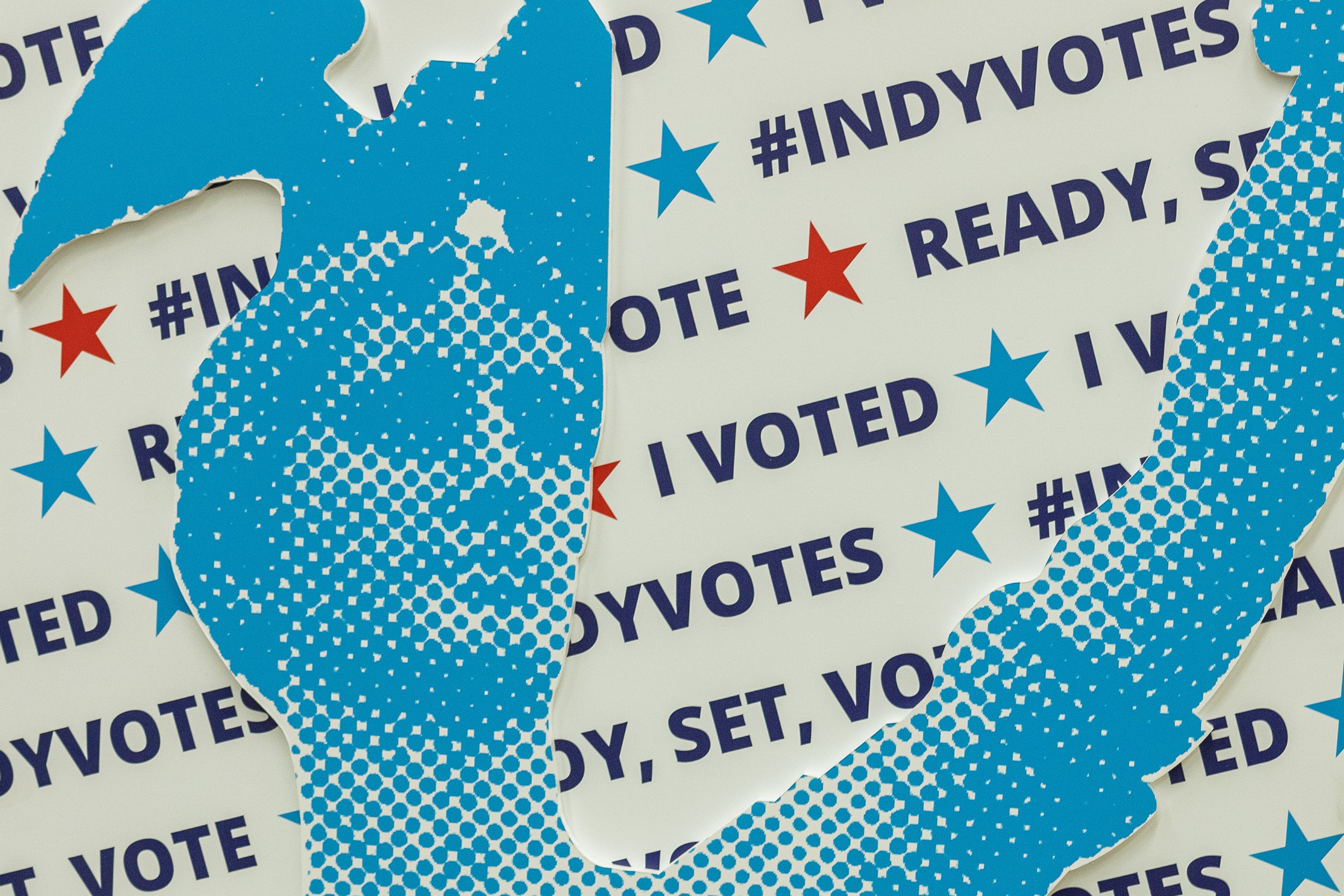Sign up for Chalkbeat Indiana’s free daily newsletter to keep up with Indianapolis Public Schools, Marion County’s township districts, and statewide education news.
Incumbent Joe Hogsett and challenger Jefferson Shreve are vying to be Indianapolis mayor in the Nov. 7 election.
Hogsett, a Democrat, is running for a third term against Shreve, a Republican, who is a businessman and former Indianapolis city-county councilor. Both candidates won their respective May primary elections with more than half of the vote.
Throughout the campaign, public safety has been in the spotlight, and the two candidates shared a stage for the first time during this year’s race at a forum hosted by Historic Urban Neighborhoods of Indianapolis and Indiana Landmarks at the end of September.
They went back-and-forth about public safety, infrastructure, housing, and more in response to audience questions. But outside of one question regarding the upcoming split of IUPUI into Indiana University Indianapolis and Purdue University in Indianapolis, education wasn’t mentioned during the forum.
The two candidates are scheduled to debate several more times this month.
The mayor’s leadership of Indianapolis and the townships impacts the educators, students and families who live in and attend school in Marion County. Additionally, the mayor’s Office of Education Innovation which includes the Indianapolis Charter School Board, approves and oversees charter schools.
So to better understand each candidates’ views and priorities on education, we asked each of them the same seven questions on topics including charter schools and authorizers, youth gun violence and more.
Here is what they said, in their own words:
Answers are as candidates submitted them and were not edited.
How to vote in the November elections
In addition to Indianapolis mayor, elections for city-county council are also on the ballot. And outside of Marion County, multiple school districts are asking voters to approve referendums.
Voter registration ends Oct. 10. Register to vote and/or check your registration at indianavoters.in.gov.
Early voting starts Oct. 11 at the Indianapolis City-County Building. Additional early voting sites are open from October 28 to November 5.
On Election Day, Nov. 7, polls are open 6 a.m to 6 p.m., and Marion County residents can vote at any of the county’s voting centers.
To find voting center locations for early voting and Election Day, apply for an absentee ballot and to see a sample ballot, visit vote.indy.gov.
MJ Slaby oversees Chalkbeat Indiana’s coverage as bureau chief and covers higher education. Contact MJ at mslaby@chalkbeat.org.





